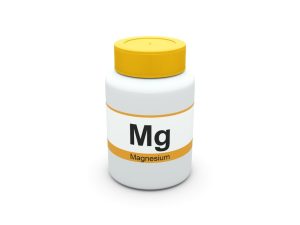 When I talk with people about foundational supplements that everyone should take, magnesium is one of them. And yet, magnesium is rarely talked about. Currently, it is estimated that 80 percent of Americans are deficient in this important mineral.
When I talk with people about foundational supplements that everyone should take, magnesium is one of them. And yet, magnesium is rarely talked about. Currently, it is estimated that 80 percent of Americans are deficient in this important mineral.
Why is magnesium important?
Magnesium regulates over 300 biochemical reactions in the body. It also plays a fundamental role in the in the reactions necessary to generate and use ATP in individual cells, which is basically the cells ability to create energy. It has been reported that there are more than 3,700 magnesium binding sites on human proteins. Magnesium is also found in more than 300 different enzymes.
Without magnesium we could not produce energy, our muscles would be in a constant state of spasm and contraction, and we could not adjust the levels of cholesterol produced and released into our blood stream.
Magnesium also plays a critical role in the body’s detoxification process. (This is why I always have patients supplement with magnesium when they are on a cleanse.) Magnesium helps the body get rid of environmental chemicals, heavy metals, and other toxins.
What about magnesium and mood?
Magnesium plays an important role in maintaining a positive mood because it is one of the important building blocks to produce serotonin, which helps us feel happy. It also plays a role in the production of neurotransmitters.
What if I am low in magnesium?
Low levels of magnesium can lead to heart disease, high blood pressure, irregular heart rhythm, muscle cramping, inability to heal, seizures, depression, gastrointestinal issues, just to name a few. Basically magnesium has a little something to do with just about everything.
Can I get enough magnesium from my food?
Because much of our food is being grown in soil that has been exhausted of important minerals, and because fertilizers are being used that further deplete minerals, some experts believe it is impossible to get enough magnesium from food, and that supplementing is the only option to having enough of this powerful nutrient.
Which foods are highest in magnesium?
The foods I recommend that contain the greatest amount of magnesium include leafy greens, nuts and seeds, fish (mackerel), avocados, bananas, figs, and dark chocolate.
Getting nutrients from whole foods is always my first choice. In my experience, it is difficult to get enough minerals from today’s food. Thus I highly recommend taking a magnesium supplement. It is important to talk with a medical practitioner to determine the right dose for each individual. Most often I recommend 200mg – 400mg daily.
Which magnesium supplement should I take?
There are many types of magnesium, but the two I prescribe most are magnesium glycinate and magnesium citrate. Mg glycinate is a chelated, active form of magnesium that tends to provide the highest level of absorption.
Mg citrate is a good choice if you deal with chronic constipation issues. It provides the positive benefits of magnesium and it softens the stool. Be careful, it can also cause diarrhea.
An important note: magnesium threonate is also worth mentioning. It is a newer, emerging magnesium supplement which has the ability to penetrate the mitochondrial membrane more effectively than other magnesium supplements. I will be testing it, reading further research and write more about it later.
Schedule your appointment today
If you have questions about how acupuncture can help you, or you’re ready to schedule your first appointment, please call me (Marnie) at 503-282-5666.
You can also click the button below…

Facebook Comments